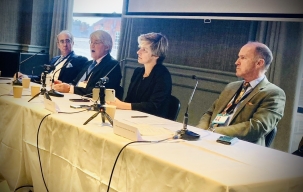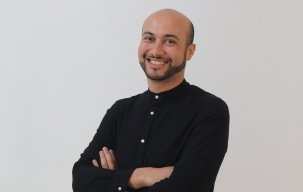Key dates
Latest
-
PodcastsDefence & Security — 2 Oct 2024
Podcast: CMEC at CPC24 pt.2: Does 'Stop The Boats' start in the Sahel?

-


Algiers
45.2 million
Multi-party republic headed by president
President Abdelmajid Tebboune
Prime Minister Mr Aymen Benabderrahmane
July 5th
H.E Mr Nourredine Yazid
Embassy of Algeria, 1-3 Riding House Street, London, W1W 7DR
H.E Mrs Sharon Wardle - * To be replaced in January 2025 by James Downer, currently deputy ambassador to Iraq.
British Embassy Algiers, Ambassade Britannique, 3 Chemin Capitaine Hocine Slimane (ex Chemin des Glycines), Algiers, Algeria
Population
Ethnically, 99% of its population is Arab-Berber, with less than 1% thought to be European.
Its official languages are Arabic and Berber, although the use of French remains widespread in government, the media, and across the education system. It has a literacy rate of 81.4% and unemployment currently stands at around 11.4%. The median age of Algeria is 28.9 years, with life expectancy 77.5 years.
Government
Algeria is governed as a presidential republic. President Abdelmadjid Tebboune was elected on 12 December 2019. Presidents are elected by popular vote and require an absolute majority, which can be secured through two rounds if necessary. They are elected for a five-year term, which can be renewed once. The Prime Minister of Algeria (currently Aymen Benabbderrahme) is nominated by the President after consultation with the majority party in Parliament.
Its legislature consists the upper house, the Council of the Nation, which has 144 seats; one-third of its members are appointed by the President, with the remaining two-thirds indirectly elected by a simple majority vote by an electoral college composed of local council members. Its members serve six-year terms, with one-half of the membership renewed every three years.
Its lower house, the National People’s Assembly, has 462 seats, including 8 seats for Algerians living abroad. Its members are elected through a proportional representation vote to serve five-year terms in multi-seat constituencies.
History
Algeria has experienced a complex and, at times, violent past. It was a former Roman colony in antiquity. It is believed that the Umayyad dynasty brought Islam to Algeria from around 670 AD. The dramatic conversion began within just 40 years of the death of the Prophet Muhammad.
Conquest by France
For more than three centuries, large parts of modern-day Algeria were ruled by the Ottoman Empire as an autonomous province. This ended in 1830 with the French capture of Algiers, after which French forces waged a long campaign for the rest of the country. It is estimated that 825,000 Algerians were killed during this campaign, one-third of the population.
Pro-independence demonstrations began in 1945, which ultimately led to the Algerian War of Independence between 1954 and 1962. Characterised by guerrilla warfare, hundreds of thousands of Algerians are believed to have died during the conflict.
Independence was finally gained in 1962. Politics in the country started out as mostly socialist in ideology, but gradually slipped into authoritarianism. The period saw agriculture being collectivised and industrialisation promoted. In 1989, a new constitution removed the one-party state and moved the country closer to western capitalism.
Civil war
Civil war began in 1991 when the government cancelled parliamentary election in which which the popular Islamic Salvation Front (FIS) looked certain to defeat the ruling National Liberation Front (FLN). Algeria's powerful military staged a coup and banned FIS. Islamist guerrillas rapidly emerged and the conflict that followed was long and extremely brutal, resulting in the deaths of perhaps up to 200,000 people. It was known as La Sale Guerre (dirty war).
The election of Abdelaziz Bouteflika as president in 1999 marked an end to the war and brought relative political stability and national reconciliation to Algeria.
Following sustained protests, President Bouteflika resigned from office on 2 April 2019.
Religion
Islam is the official religion, with 99% of Algerians identifying as Muslim, the majority of whom are Sunni.
Economy
Algeria’s currency is the dinar (DZD). Its economy is largely reliant on petroleum and other hydrocarbons. Together, they account for roughly 30% of Algeria’s GDP and represent nearly 95% of its export earnings. It has the tenth largest reserves of natural gas in the world, including the third largest reserves of shale gas, and is the sixth largest gas exporter.
Given its socialist post-independence development model, much of Algeria’s economy remains dominated by the state. For example, Sonatrach, the Algerian national oil company, plays a key role in the country’s oil and natural gas sectors, with all foreign operators obliged to work in partnership with it.
Since 2015, Algeria has increased protectionist measures to both limit its import bill and to encourage the domestic development of non-oil and gas industries. Indeed, in January 2018 the Government imposed an indefinite suspension on the importation of around 850 products (subject to periodic review).
Tension between Algeria and Morocco
For nearly 50 years, Morocco has had very poor relations with Morocco and the border between the two countries has been closed since 1994. In August 2021, Algeria severed diplomatic ties with Morocco.
Relations began to sour almost immediately after Algeria finally won its independence from its former French colonial masters. In October 1963, Morocco attempted to annex parts of two Algerian provinces. The short border conflict that followed was called "the Sand War", and saw the involvement of several foreign powers including Cuba, which backed Algiers. The conflict was resolved in Algeria's favour, recognising pre-conflict frontiers. But suspicion has simmered severe since.
The issue of Western Sahara is at the core of the bitterness between the two countries. Algeria was furious at Morocco's annexation of the territory in 1975 following its evacuation by Spain. In fact, Algerian president Houari Boumediene ordered the expulsion of 350,000 Moroccans in the wake of Morocco's so-called "Green March"of November 1975. Rabat had encouraged hundreds of thousands of Moroccans to advance across the border into Western Sahara to help expedite the Spanish withdrawal. Morocco later gained control over most of the territory. (*See Western Sahara page.)
Algeria has had no territorial claims on Western Sahara itself, but was averse to any of its neighbours annexing such a large territory and it has supported the Polisario Front of the native Sahrawi people in their fight to found an independent nation.
Western Sahara impact on international relations
The dispute has had an impact on Algeria's relations with countries other than Morocco. In June 2022, Algeria suspended a two-decades old "friendship agreement" with Spain, after Madrid endorsed Moroccan proposals for Western Sahara. These proposals were to grant a limited autonomy to Western Sahara while refusing to back-track on Moroccan sovereignty over the territory.
Algeria accused Spain of abusing its position as an "administrating power." This has caused Madrid additional economic angst because Algeria is a key gas supplier and was expected to "review" its gas prices to Spain.
In 2021, an economic dispute erupted between Morocco and Spain, after a Spanish hospital treated Polisario Front Leader Brahim Ghali when he contracted COVID-19. The resolution of this rift was swiftly followed by Algeria's decision to suspend its friendship agreement with Spain.
The Berbers of Kabylia
The Kabyle people of Kabylia number approximately 5.5million and are spread in north Algeria and across the Atlas Mountains, 100 miles or so to the east of Algiers. The Kabyles are the largest Berber speaking people in Algeria.
Since the so-called Berber Spring of 1980 in particular, which witnessed demonstrations and strikes, Berbers have campaigned for greater official recognition of their identity, culture and language. In the so-called "Black Spring" of 2001, there was a series of demonstrations and political protest by Kabyle activists in the Kabylie region. This was predominantly over the issue of the alleged cultural marginalisation of the highlander Kabyle people.
The crisis was resolved when President Bouteflika agreed to a number of Kabyle demands and withdrew police forces from the region. The Berbers' Tamazight language was incorporated into the 2002 constitution as a "national language" prior to it gain equality to Arabic in January 2016.
A small Berber area of Kabylie called Barbacha has gained a degree of autonomy from Algiers.
The decade-long Algerian Civil War (Dec'91 - Feb' 2002) witnessed a significant exodus of Berbers, with approximately 1 million now residing in France.

